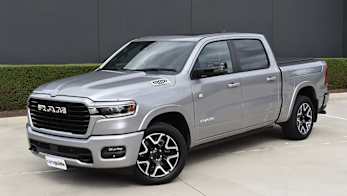Mazda warns that Australian consumers don't fully understand the impacts of the incoming New Vehicle Efficiency Standard (NVES), suggesting costs will almost certainly rise, with brands to decide between absorbing those increases, or passing them onto the consumer in the form of higher prices.
That's the word from Mazda Australia Managing Director, Vinesh Bhindi, who told CarsGuide that consumers would eventually "wake up".
Mr Bhindi says that the policy's focus on green sales means it relies on consumer demand to meet emission targets – demand, he said, that might not be there – almost ensures brands will miss C02 targets.
"I can't see a pathway – unless there is a significant EV uptake – to get enough credits to preserve pricing," he said.
"So at some point, the industry will have to incur the costs or pass them on. And maybe that's when consumers will wake up to saying, 'okay, now I understand'."
The New Vehicle Efficiency Standard sets an average C02 target for the vehicles a manufacturer sells, which the brand must meet or beat. Higher-polluting vehicles can be offset by low-emission vehicles sales, including EVs.
The targets then get progressively lower, with carmakers fined for missing targets. The obvious options are for a carmaker to absorb those fines, or to pass those costs on in the shape of higher sticker prices.
.jpg)
For Mazda, which doesn't currently offer conventional hybrids or electric vehicles, but does have a range of plug-in hybrid models, offsetting its emissions as it stands right now would be challenging.
And Bhindi says the feedback he has received suggests most buyers don't fully understand the NVES, and its potential impact.
"When I get the feedback from our dealer network, in fact, what we're seeing is total lack of knowledge of what NVES is and what it means," he said.
"And you've got to be understanding that a mum and dad buyer who comes in, this (NVES) is not in play. It will be a fine behind the scenes to OEMs."

.jpg)
.jpg)
.jpg)
.jpg)
.jpg)


.jpg)
.jpg)
.jpg)

.jpg)





.jpg)